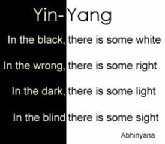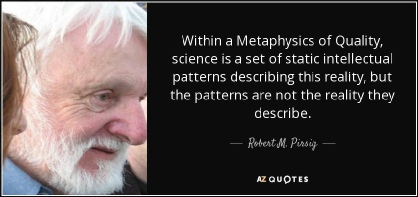


Philosophical musings on Quanta & Qualia; Materialism & Spiritualism; Science & Religion; Pragmatism & Idealism, etc.



 NEXT
NEXT
 BACK
BACK
Glossary Hints :
Glossary terms are indicated in the blog text by the dark blue color : BothAnd
A click on the linked term will take you to the glossary definition.
For more information on technical terms, go to the indicated links, both internal and external










GLOSSARY OF TECHNICAL TERMINOLOGY
|
Qualia ; Quale :
Latin term for immaterial properties, such as color & shape, of physical objects. Usually contrasted with Quanta, referring to unique things that can be counted. Qualia are subjective aspects of sensory perceptions (e.g. redness), as contrasted with the presumed objective existence of material things. Yet, all we ever know of real things is the mental images created in the mind, in response to sensory stimuli, not the things-in-themselves.
1. Qualia are metaphysical Properties considered apart from physical Things. Properties are mental attributions or essences (e.g colors), rather than physical sensations (e.g vibrations). Mathematical relationships (ratios) are virtual properties. [ see Blog Post 35 ]
|
|
Quantum Field :
In theoretical Physics, a quantum field is a metaphorical mathematical "structure", not an actual place, to allow scientist to understand ghostly things they can't see. The field is imaginary and has no physical material, but only Virtual particles that have the potential to become real. In the Enformationism theory, the state of that preceded the Big Bang is imagined as an Enfernal quantum field, with potential Platonic Forms from which actual material things could be created.
|
|
Religion :
Traditional religions of the world provided useful worldviews for their place & time, combining what we now call Science & Philosophy into a single socio-political system. However, as human cultures evolved so did their religions, in order to adapt to changing conditions.
1. Just as individual animism evolved into tribal shamans, which gave way to the priesthoods & pantheons of extended clans, the totem animals & wood spirits over time became the complex pantheons of Olympus and Elohim (Hebrew god-family). As societies became more complex & civilized with austere rulers, their gods became more abstract & remote.
2. Moreover, as isolated communities encountered other worldviews, their religions took on a broader scope. From its origins in attempts to placate or appease the unpredictable elves, religion evolved into more elaborate ventures for influencing the heavenly gods & saints. A modern secular version of this religious practice is when Americans make their Washington-bound congressman aware of local & personal needs & desires.
3. In the 21st century, most religions try to retain, and justify, as much of their obsolete ancient worldviews as possible. This may be for the same reason that civil laws are tradition-bound to the conservative authority of precedence. Yet, since the enlightenment era, Western religions have become more peripheral to the everyday lives of secular urban populations. So the default “religion” for many of those urbanites is Secular Humanism, which has no use for religious doctrines, except as they support popular holidays & festivals, such as the marketing bonanza of Christmas.
4. Does this sad situation leave any room for dogma-free belief system? Neo-Deism is envisioned as a combination of philosophical Deism and scientific Humanism – no faith required.
|



|
Pragmatic Idealism :
This term sounds like an oxymoron, combining practical realism with otherworldly fantasy. But together they describe the BothAnd attitude toward the contingencies of the world. Pragmatic Idealism is a holistic worldview, grounded upon our sensory experience with, and knowledge of, how the mundane world works, plus how Reality & Ideality work together to make a single whole. As a personal philosophy, it does not replace scientific Realism — and doesn't endorse fantasies of magic, miracles & monsters — because every thing or fact in the “real” parts of the world is subject to logical validation or empirical testing prior to belief. [ see Blog Post 4 ]
|
|
Reason :
Reason is our ability to consciously over-rule sub-conscious body & brain functions with will-power over want-power; with facts over feelings; with judiciousness over prejudice; with reflection over knee-jerk reaction. Normally, the Ego/Self is content to ride in a chauffeured limousine, enjoying the scenery without paying attention to where it's going. But in certain situations, the Self must take control of the car and do the driving itself.
|
Pragmatic Idealism :
To acknowledge the existence of the ideal realm of mathematical information has practical utility in coping with some of the paradoxes & absurdities of the Real and Quantum realms.






 NEXT
NEXT
 BACK
BACK










